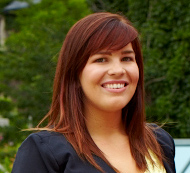The Faculty of Law is happy to offer students an experiential opportunity with Aboriginal Legal Services (ALS). ALS is an Indigenous legal services centre that provides free legal assistance to low income Indigenous people living in the City of Toronto. ALS is involved in law reform, community organizing, public legal education, and test case litigation. This part-time, two-semester clinical education program gives students the opportunity to explore legal issues and policy issues concerning Indigenous access to justice in an empirical, public interest context. The program challenges students to examine justice issues concerning the Indigenous community in a critical way, while at the same time allowing them to develop the professional and ethical literacy which is essential to the practice of law.
The Legal Clinic serves Indigenous people in a variety of areas, including:
- Housing problems and tenant rights
- Ontario Works and Ontario Disability Support Plan
- Indian Act matters
- Canada Pension Disability applications
- Employment Insurance and Employment Standards
- Police Complaints
- Criminal Injuries Compensation
- Human Rights
- Referrals to lawyers on other matters including criminal and family law
- Courtwork Program
- Community Council for Criminal Matters
- Giiwedin Anang Council on Child Welfare
- Gladue Programs
Students will work with either the Program Director or the Legal Advocacy Director. The student working with the Program Director will focus on Gladue programs. This will include specific research for individual Gladue Reports, and more generic summaries of issues (e.g. alcohol addiction among Indigenous people, inter-generational impacts of residential school, etc.) These summaries would be used in Gladue Reports where that information was relevant. The student would also have the opportunity to assist in the preparation of a Gladue Report, attend sittings of a Gladue Court, and follow the impact of the reports on individual clients.
The student working with the Legal Advocacy Director will focus on victim rights advocacy that includes Criminal Injury Compensation, Independent Assessment Process Support, and support for families going through the Inquest process. The student will attend training on victim and support related issues with staff, have the opportunity to attend and observe matters before Criminal Injuries Compensation Board (CICB), observe Inquest proceedings in Toronto and do specific file work under the supervision of lawyers. The specific file work will include preparation of an application to the CICB and drafting of written submissions to the Board on a case file.
In addition to individualized tutorials with the Directors, students will attend regular seminars on substantive legal and practical issues (approx. 6 hours per term).
For more information about Aboriginal Legal Services, visit the clinic’s website: www.aboriginallegal.ca
Contact Information
For more information about the clinic for credit, contact Assistant Dean Sara Faherty <sara.faherty@utoronto.ca>. Note that applications for this clinic are received on a rolling basis and applicants are encouraged to apply early. All applications must be received by the course selection deadline.

